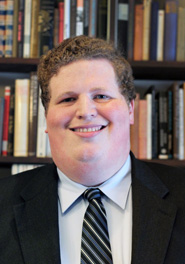Why Do People Fear Atheists? Analyzing the Brookings Institute’s Study on Religion and Atheism

I recently attended a fantastic event at the Brookings Institute where the findings of the “2013 Religion, Values, and Immigration Reform Survey” were presented. The event itself focused mainly on contemporary views on the immigration debate and delved into how religious and cultural values, in addition to age and political leanings, influence a person’s position on the issue of immigration reform.
Many of the results were to be expected, such as the fact that older and religious Tea Party members oppose immigration reform at a much higher rate than their more secular and liberal neighbors. Other results, such as the belief among nearly 60% of women that America culture has gone downhill since 1950, were rather unexpected and a bit counter-intuitive considering how much sexism and institutional discrimination existed in the 50’s.
But perhaps the most shocking finding of the study had to do with American atheists and how they are perceived by the rest of society. A graph entitled “Perceptions of How Groups Are Changing American Culture and Way of Life” shows how different groups in America, such as Muslims, gays and lesbians, immigrants, and Tea Party members, are perceived by the rest of society. I was disappointed but not surprised to see that 29% of those surveyed thought that LGBT Americans are making our country worse while only 24% thought they are making it better, nor was I astounded by the fact that more Americans think Muslims are making this country worse instead of better.
What I was amazed to see was that the two groups that are perceived by Americans as the biggest threat to our country are atheists and non-religious people, and by a very wide margin. 39% of those surveyed felt that atheists are changing this country for the worse, while only 10% thought they are changing it for the better. Likewise, 31% of those surveyed thought non-religious people are making this country worse, while only 16% thought they are making it better.
These two groups are far and away the most feared communities measured by the survey, more than undocumented immigrants, members of the Tea Party, or LGBT Americans. While I’m glad that the perception of immigrants and the LGBT community is moving in a more positive direction, I’m a bit confused as to why atheists and the non-religious are so rabidly disliked.
Is it because of popular atheist authors and public officials who fiercely debate their religious opponents? Is this societal disdain due to everyday personal interactions with average atheists who came across as overly smug or condescending? Or is it because of negative stereotypes about atheists that are perpetuated by right-wing media sources and the religious right?
Like most forms of discrimination, two of the main factors behind these opinions seem to be the age of those that were surveyed and their political beliefs. According to the survey, nearly “60% of Republicans say that atheists are changing American culture for the worse, compared to 33% of Democrats.” The report also states that “55% of seniors say that atheists are changing American culture and way of life for the worse, compared to less than 24% of Millennials.”
So what does this mean for nonbelievers in America? Well, for the next few years atheists and non-religious Americans are likely to continue experiencing discrimination and harassment from their fellow citizens because of their lack of faith. But sometime soon, possibly after all the baby boomers pass on, it’s probable that atheists and the broader nonreligious community will begin to be accepted by their fellow Americans.
Whether this means atheism will be viewed as a mostly positive force is up for debate, but it’s likely that more and more people will feel that atheism at the very least doesn’t have a negative impact on society. This neutral approach towards atheism might not be the attitude that many of us in the nonreligious community are hoping for, but it gives us a friendlier environment to extoll the virtues of disbelief to those who are skeptical of religion.
The challenge we all now face is finding a way to convince people not just that they shouldn’t hate us, but that they should like us because we ultimately are the same as they are except for the fact that we disagree when it comes to religion. Since Jews and Catholics are no longer seen by Protestants in America as having a negative impact on society, it stands to reason that other minority groups should eventually enjoy the same sort of societal acceptance.
We have a big part to play in the acceptance of our disbelief, as we can’t just rely on others to become less religious if we want to be acknowledged by society and our government. That means that atheists need to come out in large numbers, as AHA executive director Roy Speckhardt argues in a recent Huffington Post article, but it also means that when we do come out we have to do so in a way that is both bold and as non-threatening as possible. There will always be people out there who will disdain the nonreligious regardless of how many kind atheists they personally know, but we can’t let these bigots determine the size and scope of our outreach efforts. Rather, we must show those who are willing to listen that we as atheists are compassionate and hard-working people that just happen to feel differently than the majority when it comes to a belief in a god. Hopefully, they will allow us to show them just what kind of people we actually are instead of listening to those in the religious right who falsely paint us as malicious and unconcerned with the rights of religious Americans.
